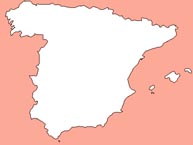Weakened and isolated, ETA marks 50 years of armed struggle
 Madrid - In 1958, a group of Basque nationalist students held meetings on how to stop what they described as "the destruction of the Basque homeland" by Spain's dictator Francisco Franco.
Madrid - In 1958, a group of Basque nationalist students held meetings on how to stop what they described as "the destruction of the Basque homeland" by Spain's dictator Francisco Franco.
On July 31, 1959, they launched a movement called Euskadi ta Askatasuna, Basque for homeland and freedom, abbreviated as ETA.
However, as Western Europe's last major armed separatist movement marks its 50th anniversary on Friday, it only bears a limited resemblance to the organization its founders created.
Once respected by Basque nationalists and the international left as a national liberation movement, ETA is now regarded by many Basques as an anachronistic terrorist group whose violent tactics work against its own goal of Basque independence.
"ETA has not had the lucidity nor the political courage to see that the times have changed inside and outside the Basque Country," one of ETA's founders, Julen Madariaga, told the daily El Pais.
The Spanish government and judiciary will not allow any tributes to mark the anniversary of the group which could still kill despite being militarily weakened, Interior Minister Alfredo Perez Rubalcaba warned.
Created on the same date on which nationalist thinker Sabino Arana founded the Basque Nationalist Party (PNV) 64 years earlier, ETA sought a more modern and radical orientation based on the Basque language and Marxism rather than ethnicity and Catholicism.
While national liberation movements fought colonialism in other parts of world, ETA members displayed Basque flags and distributed illegal books in Francoist Spain, where speaking Basque on the street could lead to getting arrested.
In 1968, ETA's struggle took a new turn when its members gunned down police officer Jose Pardines, who became the first of some 850 victims so far. The most recent of them, police officer Eduardo Puelles, died in a car bombing in June.
The victims of ETA's conflict with the Spanish state have also included about 200 of its own members, including nearly 30 ETA suspects who were killed by state-sponsored death squads in a "dirty war" against the group in the 1980s.
ETA seeks an independent Basque state of more than 2 million residents, carved out of northern Spain and southern France, and has not reassessed that goal despite the circumstances having changed radically since Franco died in 1975.
A democratic Spain granted the Basques wide self-government including tax-raising powers, a police force and the right to teach the Basque language.
The language known as Euskera is now spoken by 37.5 per cent of the Basques, up from 15.5 per cent 25 years ago, according to figures issued recently by the regional government.
Opinion polls indicate that only around 30 per cent of the Basques see independence as necessary.
Most separatist-minded Basques condemn the violence of ETA and support non-violent nationalist parties, such as PNV or the smaller and more radical Aralar.
Several attempts were made to seek a negotiated solution to the problem of ETA's violence in the 1980s and 90s, but Spanish governments refused to discuss the question of independence, and ETA decided to step up the pressure by "socializing suffering."
Its shootings and bombings no longer targeted only police, soldiers and the like, but also ordinary people, such as young local politician Miguel Angel Blanco, whose abduction and killing brought millions of demonstrators to the streets in 1997.
While ETA's support plunged, Spain increased police cooperation with France, where the group has most of its infrastructure.
Relentless police crackdowns have decimated the group, with about 700 of its members now in prison. Jailed veteran activists have been replaced by inexperienced young leaders many of whom have been arrested in rapid succession.
At the same time, the Spanish judiciary has clamped down on ETA's political dimension, banning pro-ETA parties and leaving the group without representation in the current Basque parliament.
The region now has its first clearly pro-Spanish government, which has launched a campaign to delegitimize violent separatism with measures such as removing pro-ETA posters from Basque villages.
Increasing numbers of ETA prisoners and other radical separatists are believed to be questioning the group's violent strategy, though hardliners within ETA refuse to lay down arms and to switch to a purely political strategy in favour of independence.
Such a move could ultimately be even more of a problem for Spain than the violence of ETA, whose existence has allowed Madrid to dodge the question of Basque independence, arguing that it does not make concessions to terrorists, according to some analysts.
"ETA supplies the objective argument for not democratically debating the principle of self-determination," political science professor Cesareo Rodriguez-Aguilera wrote.
"Today, armed struggle is negative for our ideas of independence," says Madariaga, who has left ETA and joined Aralar. (dpa)